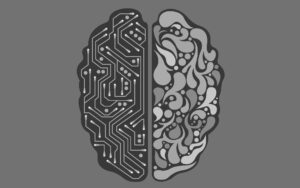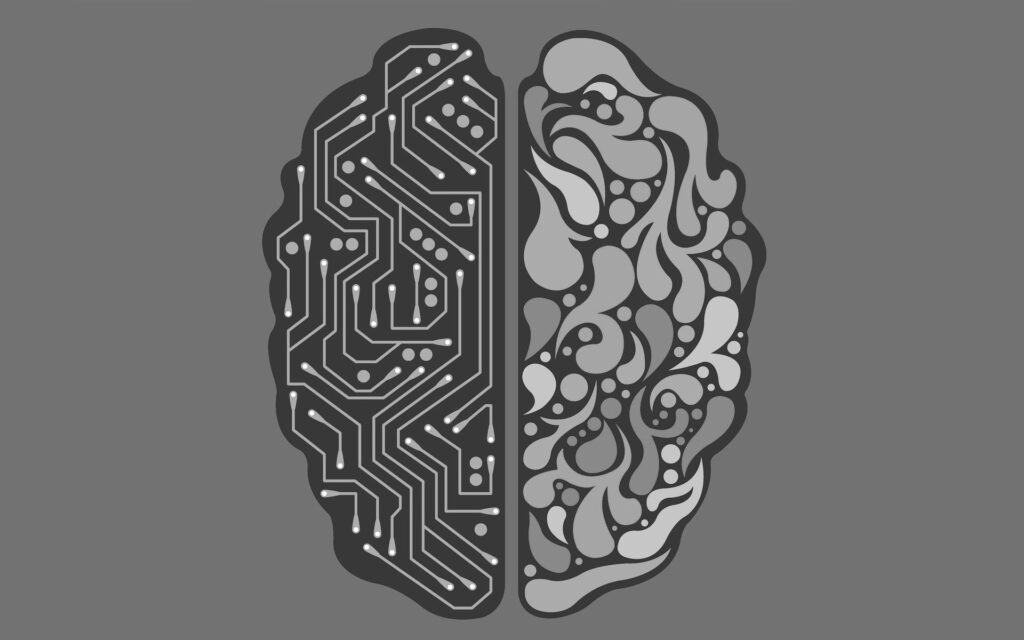By Ivey Fidelibus
A few times within each generation, an invention is so novel and powerful that it changes not only a certain profession or specific task, but society itself.[1] For example, consider the debut of Facebook in 2004 and the ensuing rise of social media[2] or Apple’s launch of the first iPhone in 2007.[3] Now, a new technology has arisen that threatens to change the way we learn, research, communicate, and work.
ChatGPT is a “deep-learning software that can generate new text once trained on massive amounts of existing written material.”[4] In plain words, ChatGPT engages in human-like conversation in response to user prompts. It was released by OpenAI, a San Francisco AI research and deployment company whose self-proclaimed mission is to “ensure that artificial general intelligence (AGI)—by which we mean highly autonomous systems that outperform humans at most economically valuable work—benefits all of humanity.”[5] For a few examples of ChatGPT’s functionality, I had ChatGPT respond to the following prompts, with answers ranging in novelty and accuracy:
“write a song in the style of dolly parton about the rule against perpetuities,”[6] “write a short judicial opinion in the style of chief justice john marshall about whether a hot dog is a sandwich,”[7] and “write a law school essay exam question for a decedents’ estates and trusts class about the rule against perpetuities”[8]
An avalanche of discourse has fallen describing how ChatGPT may cause, or contribute to, the demise of high school English classes,[9] college essays,[10] and democracy.[11] ChatGPT must also affect the teaching and practice of law, considering that the legal profession hinges on effective written communication, such as motions, briefs, research memoranda, and contracts. As to law school, ChatGPT seems to already both aid and hinder learning.[12] As demonstrated, ChatGPT can equally produce questions to test student knowledge and the plagiarized answers to student assessments. However, educators may be able to fight students’ plagiarism by AI with their own artificial intelligence programs that detect when text is written by chatbots.[13]
As to the practice of law, the future is completely uncertain, and questions remain unanswered about ChatGPT’s efficacy.[14] Though the chatbot was able to pass certain sections within the multistate multiple-choice section of the bar exam, [15] as of now, ChatGPT is severely limited. OpenAI describes some of the chatbot’s limitations as: “writ[ing] plausible-sounding but incorrect or nonsensical answers,” “often [being] excessively verbose and overus[ing] certain phrases,” and “guess[ing] what the user intended,” instead of asking “clarifying questions.”[16] Another critical issue for lawyers is ChatGPT’s inability to “explain the source(s) of the information it provides.”[17] Further, the chatbot “is not connected to the internet” and has “limited knowledge of world and events after 2021,”[18] so even if ChatGPT did cite its sources, an attorney would risk the exclusion of the most recent precedents and could not fully Shepardize the sources cited.
Further, even if ChatGPT could produce sufficiently accurate, complex legal writing, attorneys must tread carefully to avoid a breach of confidentiality. “The attorney-client privilege is recognized in every state and federal jurisdiction in the United States . . . with over five hundred years of recognition at common law.”[19] This privilege is based in part on “the attorney’s moral duty to maintain confidentiality of the client relationship or respect for autonomy of the client through protection of the fiduciary nature of the attorney’s role.”[20] Therefore, attorneys have the “duty to protect the confidentiality of the communications to preserve the privilege.”[21] Attorneys face a range of punishments for violating the ethical requirements of confidentiality, including discipline by states’ disciplinary processes, claims of malpractice by the client against the attorney, and waiver of attorney-client privilege or work-product protection.[22]
Attorneys already risked breaches of confidentiality when using common Internet programs and websites like Google, because of the rise of data monitoring and tracking.[23] ChatGPT elevates these risks, in part because it users likely will need to input a greater volume and specificity of data to produce a well-informed, complex AI output. Further, OpenAI openly admits that the company “review[s]” conversations to improve [its] systems and to ensure the content complies with [its] policies and safety requirements” and users’ “conversations may be reviewed by [its] AI trainers to improve [its] systems.” [24] OpenAI also makes clear that specific prompts from users’ histories cannot be deleted, and the company pleads that users “[p]lease don’t share any sensitive information in [their] conversations.”[25]
Therefore, even if ChatGPT produced perfect outputs, data-storing AI programs still would likely be unusable because they would require attorneys to input sensitive information into a nonconfidential forum. It seems like ChatGPT Esq. will have to wait.
[1] See James Fallows, The 50 Greatest Breakthroughs Since the Wheel, Atlantic (Nov. 2013), https://www.theatlantic.com/magazine/archive/2013/11/innovations-list/309536/.
[2] See Sarah Phillips, A brief history of Facebook, Guardian (Jul. 25, 2007), https://www.theguardian.com/technology/2007/jul/25/media.newmedia.
[3] See Rani Molla, How Apple’s iPhone changed the world: 10 years in 10 charts, Vox (Jun. 26, 2017), https://www.vox.com/2017/6/26/15821652/iphone-apple-10-year-anniversary-launch-mobile-stats-smart-phone-steve-jobs.
[4] Ian Bogost, ChatGPT is Dumber Than You Think, Atlantic (Dec. 7, 2022), https://www.theatlantic.com/technology/archive/2022/12/chatgpt-openai-artificial-intelligence-writing-ethics/672386/.
[5] OpenAI, About, https://openai.com/about/ (last visited Jan. 18, 2023).
[6] “Verse 1:
In the land of property law, there’s a rule that you should know
It’s the rule against perpetuities, and it’s been around for centuries
It says that an interest in land can’t last forever, it’s got to end
Otherwise it’s a perpetuity, and that’s not how it should bend
Chorus:
So let the land be free, for future generations to see
Don’t tie it up for all time, let it breathe, let it shine
The rule against perpetuities, it’s there for a reason
To keep the land from being locked up, without any good reason
Verse 2:
Some folks might try to get around it, but they’ll find it’s not so easy
The rule’s been tested and true, it’s not something you can breezy
So if you’re thinking about a trust, or a lease that never ends
Just remember the rule against perpetuities, and how it bends
Chorus:
So let the land be free, for future generations to see
Don’t tie it up for all time, let it breathe, let it shine
The rule against perpetuities, it’s there for a reason
To keep the land from being locked up, without any good reason
Outro:
So let’s all respect the rule, and keep the land in motion
For future generations to enjoy, with no undue devotion.
[7] “It is the opinion of this Court that a hot dog is not a sandwich. The common understanding of a sandwich, as defined by Merriam-Webster, is ‘two or more slices of bread or a split roll having a filling in between.’ A hot dog, however, is comprised of a bun and a sausage, with the option of various toppings. The bun and sausage are not ‘in between’ slices of bread, and therefore do not fit the definition of a sandwich. We find that a hot dog is a distinct and separate food item, and should not be classified as a sandwich.”
[8] “In the state of XYZ, a testator created a trust in her will for the purpose of providing income to her granddaughter for her lifetime. Upon the granddaughter’s death, the trust was to be distributed to the testator’s great-grandchildren. The trust instrument provided that the trust was to last for 21 years after the death of the granddaughter.
However, after the testator’s death, it was discovered that one of the great-grandchildren was not born at the time the will was executed and would not reach the age of majority for more than 21 years after the granddaughter’s death.
Analyze the validity of the trust under the rule against perpetuities. Would the trust be valid if the state of XYZ has the common law rule against perpetuities or the wait and see approach? Explain your reasoning and cite any relevant case law or statutes.”
[9] Daniel Herman, The End of High-School English, Atlantic (Dec. 9, 2022), https://www.theatlantic.com/technology/archive/2022/12/openai-chatgpt-writing-high-school-english-essay/672412/.
[10] Stephen Marche, The College Essay Is Dead, Atlantic (Dec. 6, 2022), https://www.theatlantic.com/technology/archive/2022/12/chatgpt-ai-writing-college-student-essays/672371/.
[11] Nathan E. Sanders & Bruce Schneier, How ChatGPT Hijacks Democracy, N.Y. Times (Jan. 15. 2023), https://www.nytimes.com/2023/01/15/opinion/ai-chatgpt-lobbying-democracy.html?campaign_id=39&emc=edit_ty_20230116&instance_id=82847&nl=opinion-today®i_id=78377744&segment_id=122655&te=1&user_id=71ef53aec7c806778d2d3ec87228434a.
[12] Karen Sloan, Some Law Professors Fear ChatGPT’s Rise as Others See Opportunity, Reuters (Jan. 10, 2023, 7:19 PM), https://www.reuters.com/legal/legalindustry/some-law-professors-fear-chatgpts-rise-others-see-opportunity-2023-01-10/.
[13] Emma Bowman, A College Student Created an App that Can Tell Whether AI Wrote an Essay, NPR (Jan. 9, 2023, 5:01 AM), https://www.npr.org/2023/01/09/1147549845/gptzero-ai-chatgpt-edward-tian-plagiarism.
[14] Bailey Schulz, DoNotPay’s ‘First Robot Lawyer’ to Take on Speeding Tickets in Court Via AI. How It Works, USA Today (Jan. 10, 2023, 2 PM), https://www.usatoday.com/story/tech/2023/01/09/first-ai-robot-lawyer-donotpay/11018060002/; Jenna Greene, Will ChatGPT make lawyers obsolete? (Hint: be afraid), Reuters (Dec. 9, 2022, 2:33 PM), https://www.reuters.com/legal/transactional/will-chatgpt-make-lawyers-obsolete-hint-be-afraid-2022-12-09/.
[15] Michael J. Bommarito II and Daniel Martin Katz, GPT Takes the Bar Exam, SSRN (Dec. 29, 2022), https://papers.ssrn.com/sol3/papers.cfm?abstract_id=4314839.
[16] OpenAI, Blog, https://openai.com/blog/chatgpt/ (last visited Jan. 18, 2023).
[17] Oliver Jeffcott. ChatGPT and legal services, Lexology (Jan. 10, 2023), https://www.lexology.com/library/detail.aspx?g=dd045cf9-4dd7-4ff8-b17d-f4250a6e1a04.
[18] OpenAI, FAQ, https://help.openai.com/en/articles/6783457-chatgpt-faq (last visited Jan. 18, 2023).
[19] Anne Klinefelter, When to Research Is to Reveal: The Growing Threat to Attorney and Client Confidentiality from Online Tracking, 16 Va. J. L. & Tech. 1, 22 (2011).
[20] Id. at 23.
[21] Id.
[22] See id. at 34.
[23] See id. at 4-5.
[24] OpenAI, FAQ, https://help.openai.com/en/articles/6783457-chatgpt-faq (last visited Jan. 18, 2023).
[25] Id.


